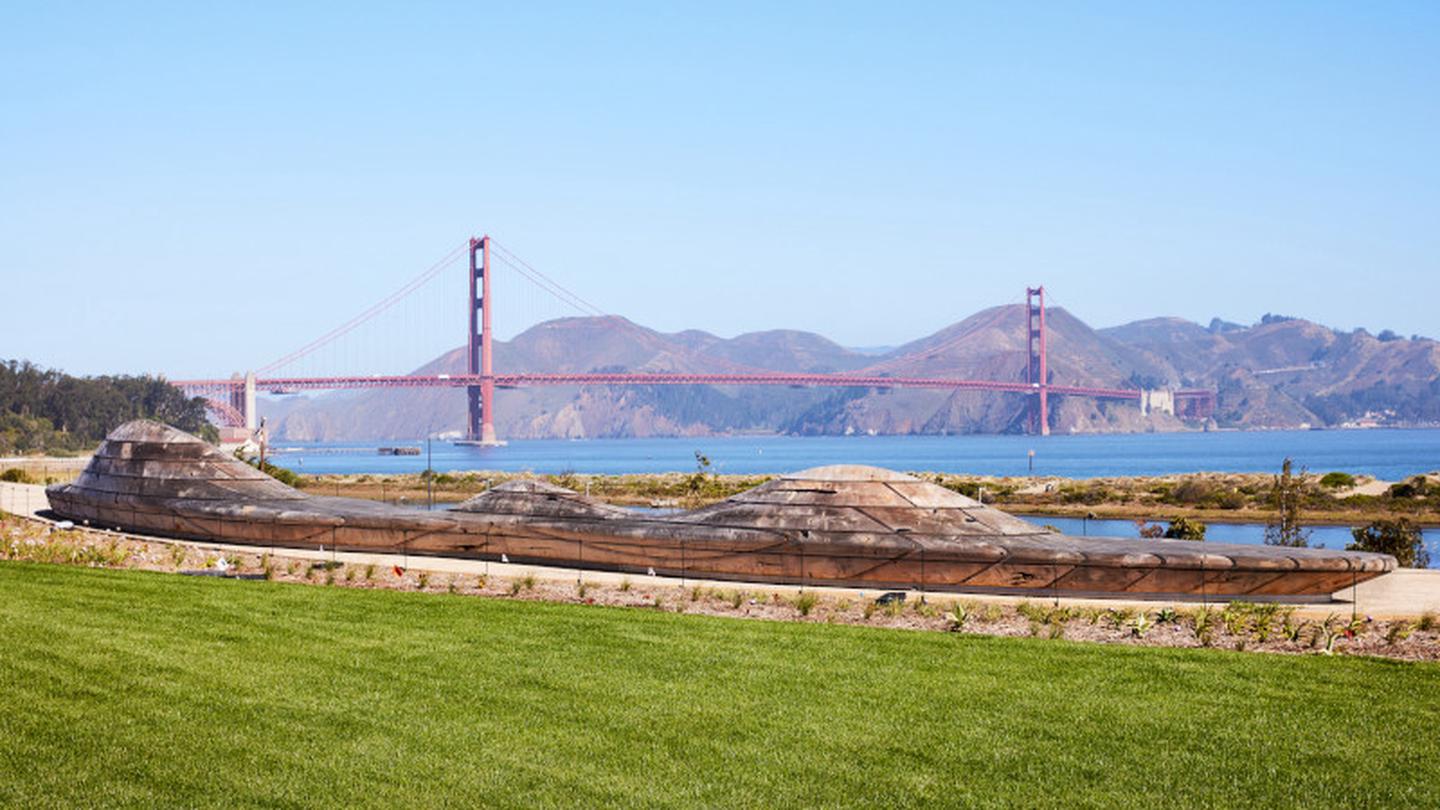
- Details
- By Kaili Berg
The Muwekma Ohlone Tribe of the San Francisco Bay Area is making a formal request to assume stewardship of the federally-run Presidio, a former military base turned 1,500 acre park.
The move, supported by a public petition co-hosted with the Lakota People’s Law Project, comes in response to a recent executive order by former President Donald Trump to dissolve the Presidio Trust, the agency currently overseeing the site.
Tribal Chairwoman Charlene Nijmeh argues that returning the land to the Muwekma Ohlone, non-federally recognized tribe, would cut government spending, restore Indigenous stewardship to ancestral lands, and begin to address a long history of erasure and exclusion.
“This is an opportunity for President Trump to do what the state of California has failed to do,” Nijmeh said. “Not only will returning the Presidio to Indigenous care be the right thing for our people and for the land, but it will also save the federal government — and taxpayers — money.”
The tribe has a long and complicated history with the Presidio. The land was once home to Ohlone ancestors long before it became a Spanish fort, a U.S. military base, or a federal park.
In 1992, when the site was decommissioned as a military installation, the tribe submitted a Right of First Refusal. Their proposal was dismissed, and according to Nijmeh, actively opposed by powerful local politicians, including late U.S. Sen. Dianne Feinstein and Speaker Emerita Nancy Pelosi, both longtime residents of the area.
“I don’t want an Indian tribe in my city,” Feinstein told the former tribal chairwoman at the time, according to Nijmeh tribal sources. A statement that Nijmeh says still offends tribal officials today.
Nijmeh says that despite grassroots support and formal resolutions from four county Democratic committees backing the tribe’s fight for federal recognition, key political figures have remained opposed.
The Muwekma Ohlone have been working for over four decades to reaffirm their federal status, which would restore certain legal rights and funding streams. For now, the tribe sees this moment as a rare opening to address old injustices.
“With the Presidio Trust on the chopping block, we’re offering a viable alternative — one that’s cost-effective, culturally rooted, and environmentally sound,” Nijmeh said.
Today, the park has some 7.5 million visitors annually.
More Stories Like This
Native News Weekly (August 25, 2024): D.C. BriefsUS Presidents in Their Own Words Concerning American Indians
Oral History Project Announces 14th Stop in Portland, Oregon: NABS Continues to Gather Crucial Stories Across Indian Country
Deb Haaland Releases Statement on 2025 Election Results
Instead of Native American Heritage Month Proclamation, Trump Issues A Message
Help us tell the stories that could save Native languages and food traditions
At a critical moment for Indian Country, Native News Online is embarking on our most ambitious reporting project yet: "Cultivating Culture," a three-year investigation into two forces shaping Native community survival—food sovereignty and language revitalization.
The devastating impact of COVID-19 accelerated the loss of Native elders and with them, irreplaceable cultural knowledge. Yet across tribal communities, innovative leaders are fighting back, reclaiming traditional food systems and breathing new life into Native languages. These aren't just cultural preservation efforts—they're powerful pathways to community health, healing, and resilience.
Our dedicated reporting team will spend three years documenting these stories through on-the-ground reporting in 18 tribal communities, producing over 200 in-depth stories, 18 podcast episodes, and multimedia content that amplifies Indigenous voices. We'll show policymakers, funders, and allies how cultural restoration directly impacts physical and mental wellness while celebrating successful models of sovereignty and self-determination.
This isn't corporate media parachuting into Indian Country for a quick story. This is sustained, relationship-based journalism by Native reporters who understand these communities. It's "Warrior Journalism"—fearless reporting that serves the 5.5 million readers who depend on us for news that mainstream media often ignores.
We need your help right now. While we've secured partial funding, we're still $450,000 short of our three-year budget. Our immediate goal is $25,000 this month to keep this critical work moving forward—funding reporter salaries, travel to remote communities, photography, and the deep reporting these stories deserve.
Every dollar directly supports Indigenous journalists telling Indigenous stories. Whether it's $5 or $50, your contribution ensures these vital narratives of resilience, innovation, and hope don't disappear into silence.
 The stakes couldn't be higher. Native languages are being lost at an alarming rate. Food insecurity plagues many tribal communities. But solutions are emerging, and these stories need to be told.
The stakes couldn't be higher. Native languages are being lost at an alarming rate. Food insecurity plagues many tribal communities. But solutions are emerging, and these stories need to be told.
Support independent Native journalism. Fund the stories that matter.
Levi Rickert (Potawatomi), Editor & Publisher

